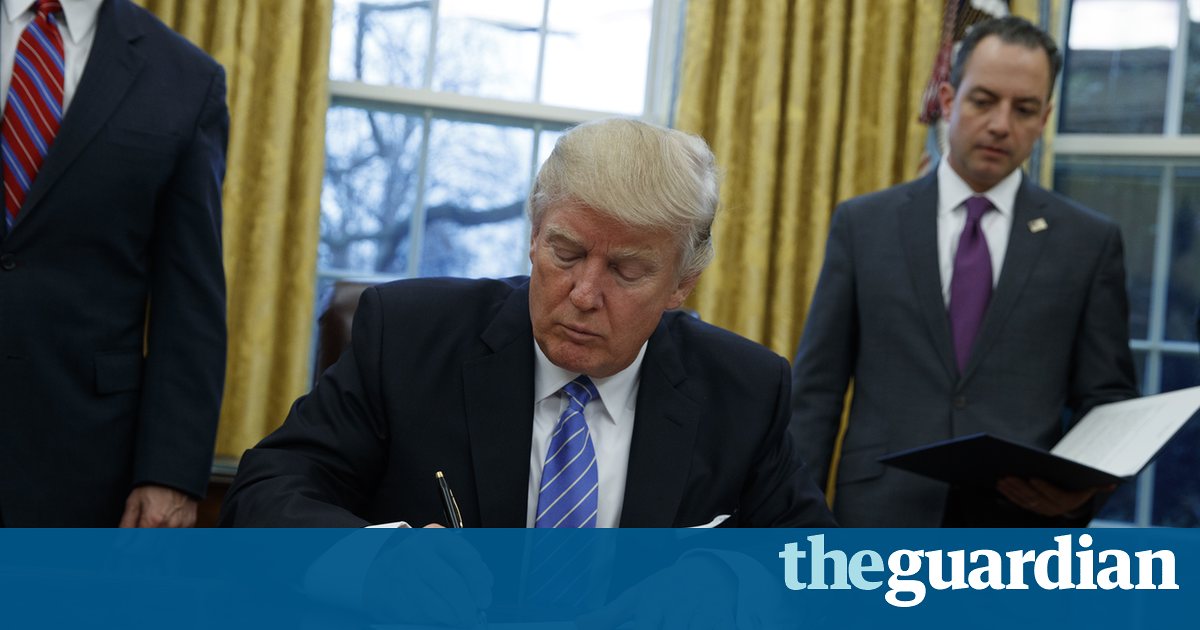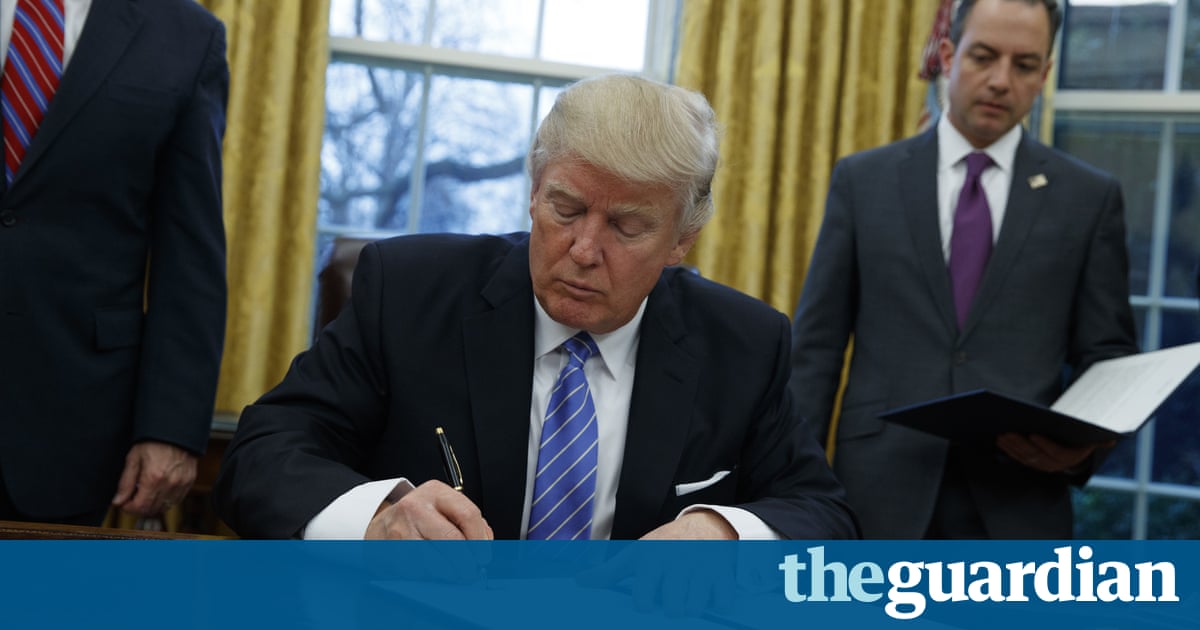Bernie Sanders supports Trump’s TPP order while McCain criticizes opting out

The former Democratic candidate called for new trade policy for working families as the Republican senator and economists expressed concerns over global impact

Donald Trump has officially killed the Trans-Pacific Partnership (TPP), the controversial trade deal that became a lightning rod for critics on the left and right during the election campaign.
Following a meeting with a dozen executives from US manufacturers on Monday, Trump signed an executive order formally ending the USs participation in the TPP.
While the move was largely symbolic leading Republicans and Democrats had both come out against the deal it underlined the Trump administrations determination to end decades of White House support for increased free trade.
The president and Democratic presidential hopeful Bernie Sanders both attacked TPP, a free trade agreement among the US and 11 other countries, on the campaign trail. Sanders praised Trumps decision, saying TPP is dead and gone.
Now is the time to develop a new trade policy that helps working families, not just multinational corporations, Sanders said in a statement. If President Trump is serious about a new policy to help American workers then I would be delighted to work with him.
For the past 30 years, we have had a series of trade deals which have cost us millions of decent-paying jobs and caused a race to the bottom which has lowered wages for American workers, he said.
Senator John McCain criticized the move. President Trumps decision to formally withdraw from the Trans-Pacific Partnership (TPP) is a serious mistake that will have lasting consequences for the American economy and our strategic position in the Asia Pacific region, he said.
Pro-trade economists and executives were also worried by the move to end the prospective deal encompassing the US and 11 countries Australia, Brunei, Canada, Chile, Japan, Malaysia, Mexico, New Zealand, Peru, Singapore and Vietnam.
Daniel Ikenson, director of libertarian thinktank Cato Institutes Herbert A Stiefel Center for Trade Policy Studies, said the US was now becoming more protectionist than at any point since the Hoover administration.
Ikenson, said there had been bipartisan support for trade liberalization from 1934 to 1994 when Congress was split over the North American Free Trade Agreement (Nafta). But even after that split, the president had always been pro-trade. This is a huge departure from US tradition, said Ikenson.
TPP was the best opportunity for the incoming US administration to renegotiate Nafta as it applied to the US, Canada, and Mexico, said Ikenson. By quitting TPP, the US is effectively declining to take part in crafting the rules and institutions that will govern trade in the region, he said. Instead, Chinas preferences will be reflected in those rules and architecture and their preference is for addressing border barriers, tariffs and such, and not so much the behind-the-border rules and regulations that have disproportionate impact on services trade and the intellectual property-dependent industries, i.e US interests, said Ikenson.
At his meeting with business leaders earlier in the day Trump had warned again that he intends to punish US companies that ship jobs overseas. A company that wants to fire all of its people in the United States, and build some factory someplace else, and then thinks that that product is going to just flow across the border into the United States thats not going to happen, he said.
We are going to be imposing a very major border tax on the product when it comes in, Trump said.
The president promised the executives from Ford, Dell Technologies, Tesla and others that he would cut regulation and taxes for businesses.
The decision to end TPP and warn of consequences for outsourcing was just the latest in a series of shots Trump has fired over the heads of US business.
Since his election Trump has attacked plans by Ford, General Motors and Toyota to build cars destined for US import outside the country, particularly in Mexico.